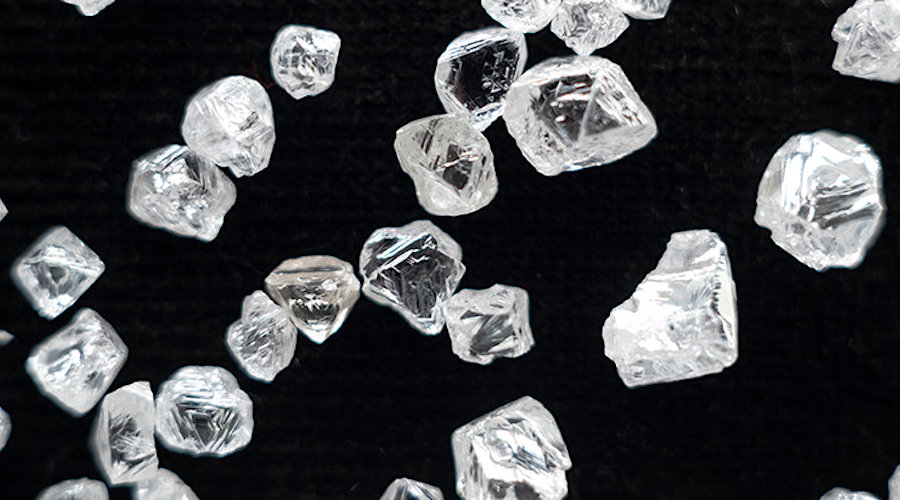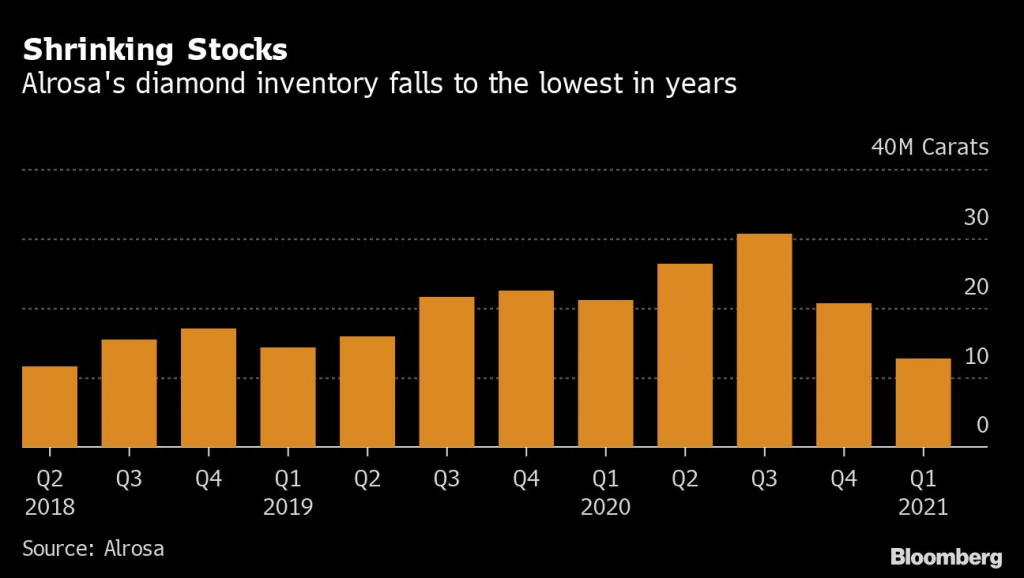Diamond stash worth billions sold off after demand roars back

The diamond industry’s collapse last year left the biggest producers with billions of dollars of uncut gems stashed away in safes. Now, in a matter of months, they’ve suddenly found buyers.
The huge stockpile was built up when the diamond world came to a standstill during the height of the pandemic, stoking fears that gems amassed by the biggest miners could hurt the sector for years. But rampant demand from the middlemen who cut, polish and trade stones has all but wiped out the stash — and remarkably as top producers De Beers and Alrosa PJSC raised prices.
It’s been a rapid turnaround as cutting centers in India and Antwerp rushed to replenish supplies they’d been unable to buy during the worst of the crisis. At the same time, demand jumped amid surprisingly good festive sales, with consumers unable to book vacations spending more on luxuries such as gems.

De Beers this week said it sold 13.5 million carats of diamonds in the first quarter, almost double the amount it mined in the period, signaling stock drawdowns. While the No. 1 miner doesn’t report inventories, it indicated to customers in recent weeks that stockpiles have returned to normal levels, according to people familiar with the matter who asked not to be identified. The company declined to comment.
Russian miner Alrosa’s inventories tumbled about 60% in six months to 12.8 million carats by the end of March, the lowest in almost three years.
Managing supply has been a headache for the sector ever since De Beers ended its monopoly around the turn of the century. Inventories ballooned during the 2008-09 financial crisis and again in 2013, and each time subsequent stockpile sales saw polished gems build up, putting huge pressure on the industry’s midstream.
The big question is whether the industry will be disciplined enough not to sell too much too soon
Yet the top miners have been able to raise prices this time round, after significantly cutting production last year and buoyed by renewed demand from manufacturers and traders. De Beers has been hiking prices since the end of last year, back to pre-coronavirus levels. It sold more than $1.6 billion in rough gems in its first three sales of 2021, the most since 2018.
“Alrosa and De Beers have managed to clear the excess inventories built over the course of 2020 and without hurting polished-diamond pricing that continues to advance,” Liberum Capital analyst Ben Davis said. “This bodes very well for the remainder of the year to clear that much stock in such a short space of time.”
There are still plenty of risks. The start of the year is typically busiest because of restocking, and any slowing in sales will pressure prices again.
In India, the industry’s factory engine room remains vulnerable to a ferocious new coronavirus wave. Concerns are mounting that local production won’t be able to meet demand from key Chinese and U.S. retailers, and some manufacturing has already been curtailed, according to people familiar with the matter. That could create shortages, but may also cut rough-diamond demand.
While the speed of the stockpile drawdown caught many by surprise, the big question is whether the industry will be disciplined enough not to sell too much too soon.
“The industry has to use supply and pricing in tandem,” said Anish Aggarwal, a partner at adviser Gemdax. “That’s been the big takeaway from this crisis.”
(By Thomas Biesheuvel)
{{ commodity.name }}
{{ post.title }}
{{ post.date }}




Comments